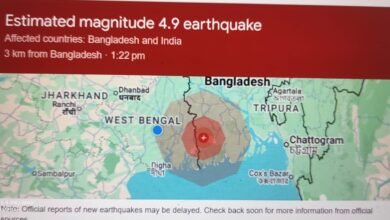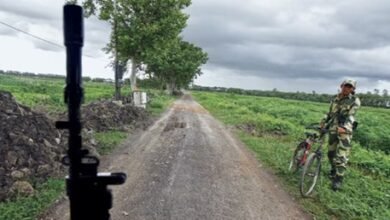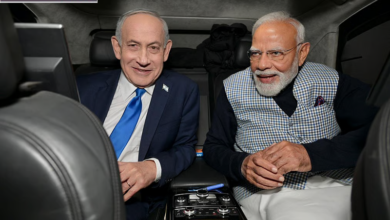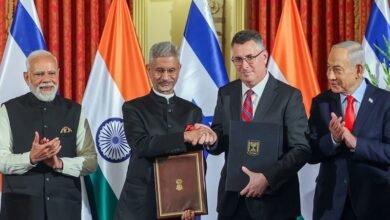Farooq Abdullah’s Comments Spark Controversy: Statements on Pakistan-Occupied Kashmir

News Mania / Agnibeena Ghosh/6th May 2024
The issue of Pakistan-occupied Kashmir (PoK) has long been a contentious subject in Indian politics, with various leaders offering their perspectives on its status and future. Recent remarks from Union Defence Minister Rajnath Singh and Jammu and Kashmir National Conference leader Farooq Abdullah have sparked debates and discussions regarding the region’s fate and implications for India-Pakistan relations. Let’s delve into these statements and their significance.
Union Defence Minister Rajnath Singh’s assertion that PoK will eventually merge with India reflects a strong stance on the territorial integrity of the nation. Speaking at a rally in Darjeeling, Singh expressed confidence in India’s growing power and prestige, suggesting that the people of PoK would willingly choose to be part of India in light of the country’s development and progress. This statement underscores India’s firm position on PoK and its commitment to reclaiming territories under Pakistan’s control.
However, Farooq Abdullah’s response to Singh’s remarks introduces a note of caution and realism into the discourse. Abdullah’s acknowledgment of Pakistan’s nuclear capabilities and the potential consequences of any military escalation highlights the complex geopolitical dynamics at play in the region. By cautioning against underestimating Pakistan’s military capabilities, Abdullah underscores the need for diplomatic and strategic considerations in addressing the PoK issue.
Abdullah’s statement also underscores the importance of recognizing Pakistan as a significant actor in any resolution concerning PoK. By emphasizing Pakistan’s agency and capabilities, Abdullah calls attention to the necessity of engaging with Pakistan diplomatically to address the longstanding dispute over Kashmir and its associated territories.
External Affairs Minister S Jaishankar’s comments further contextualize the PoK issue within the framework of Indian sovereignty and parliamentary resolutions. Jaishankar reaffirms India’s position that PoK is an integral part of the country, echoing the sentiments expressed by Rajnath Singh. By referencing a resolution of the Indian Parliament asserting India’s claim over PoK, Jaishankar reiterates the legal and political basis for India’s stance on the region.
Jaishankar’s remarks also highlight the historical context of the PoK issue, suggesting that the region’s occupation by Pakistan was a consequence of India’s internal vulnerabilities rather than a legitimate transfer of sovereignty. This perspective underscores India’s narrative of victimhood and injustice regarding PoK and seeks to reframe the narrative surrounding its status and future.
The statements from Rajnath Singh, Farooq Abdullah, and S Jaishankar reflect diverse perspectives on the PoK issue, ranging from assertions of territorial sovereignty to pragmatic considerations of geopolitical realities. While Singh’s assertion of India’s claim over PoK resonates with nationalist sentiments and aspirations for territorial reunification, Abdullah’s cautionary remarks highlight the potential risks and complexities involved in any unilateral action.
Jaishankar’s remarks bridge these perspectives by emphasizing India’s legal and political claims over PoK while acknowledging the need for diplomatic engagement and strategic foresight in addressing the issue. Overall, these statements underscore the multifaceted nature of the PoK dispute and the importance of a nuanced and comprehensive approach to resolving it.






